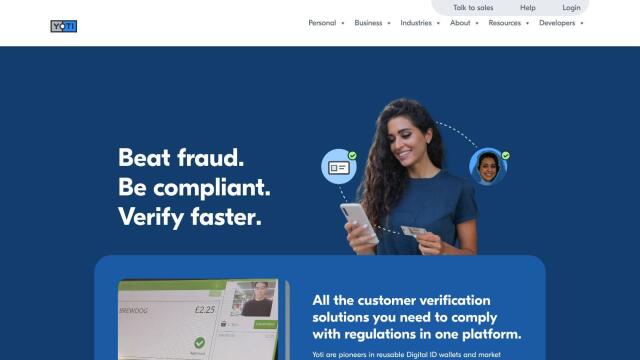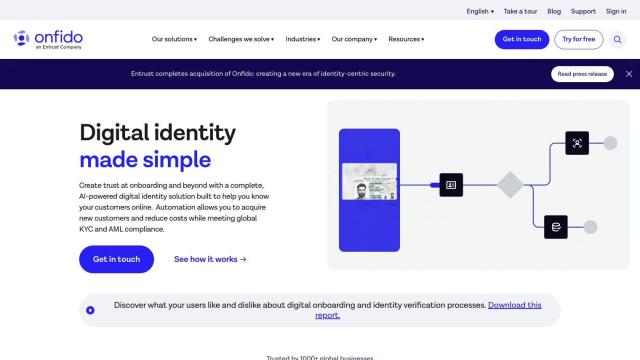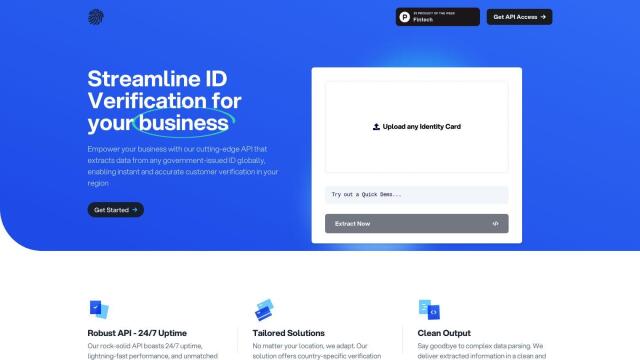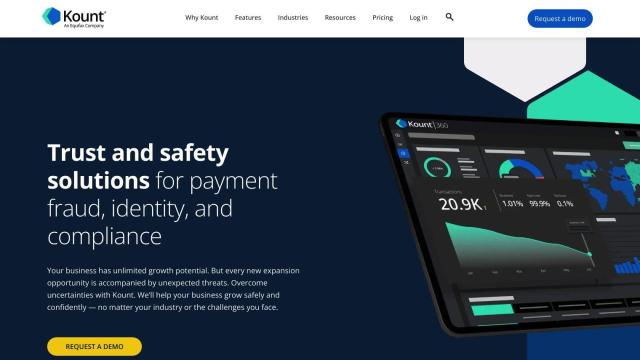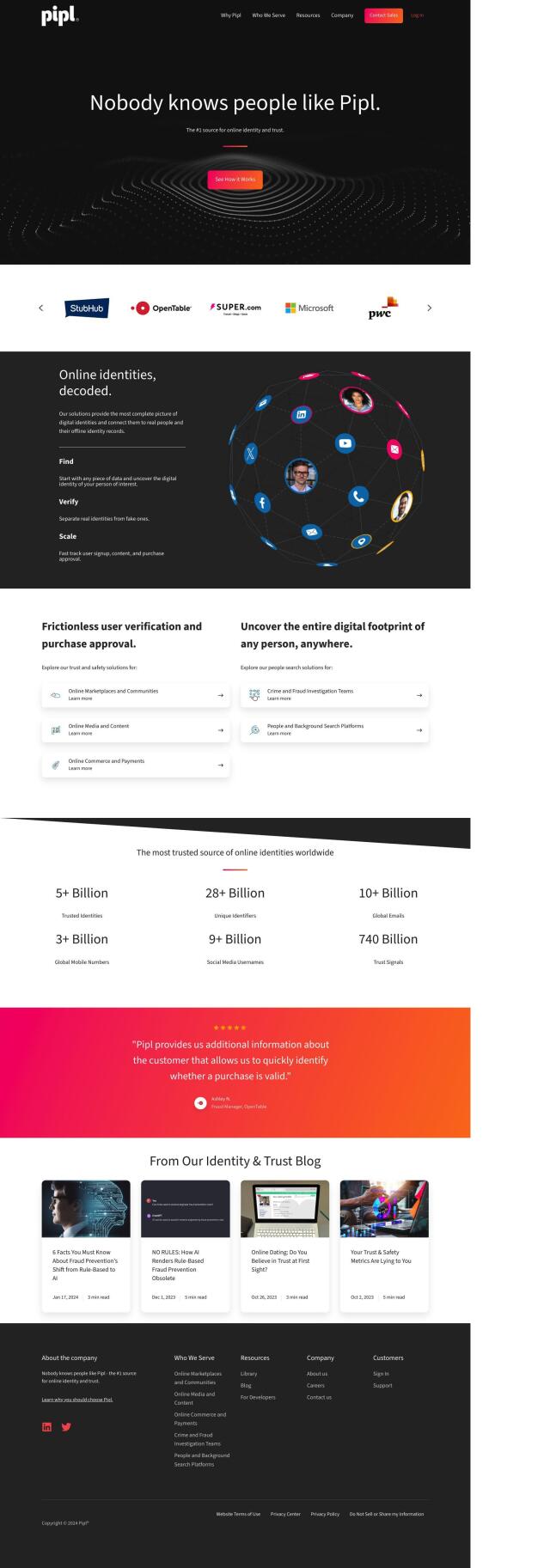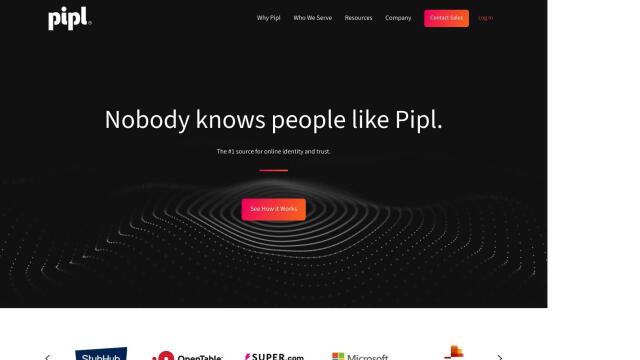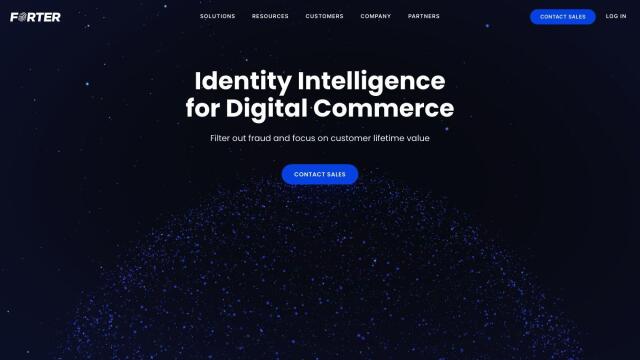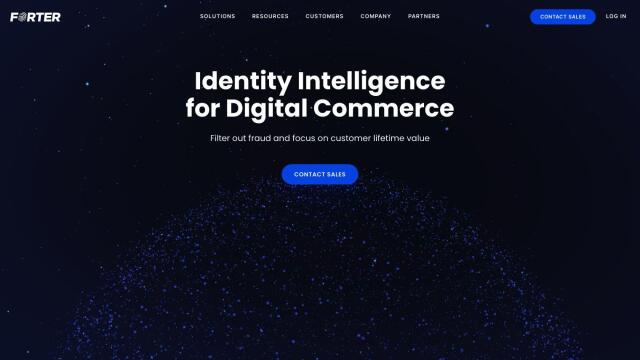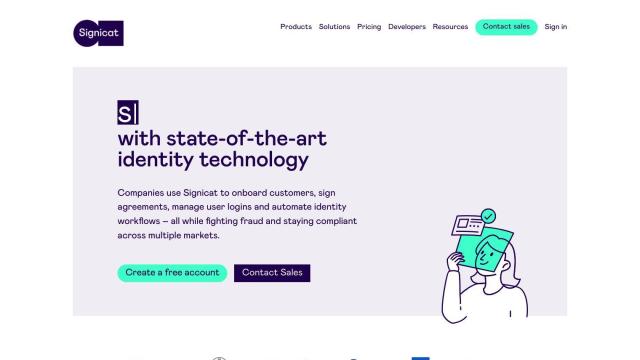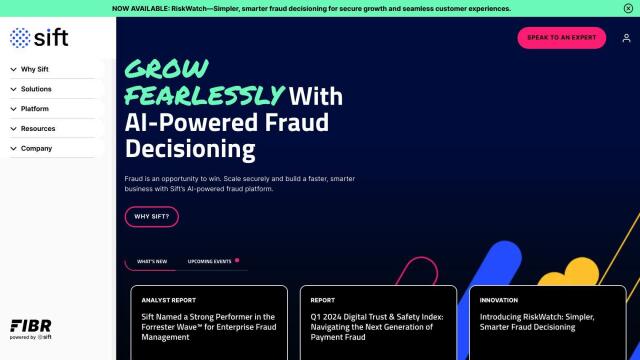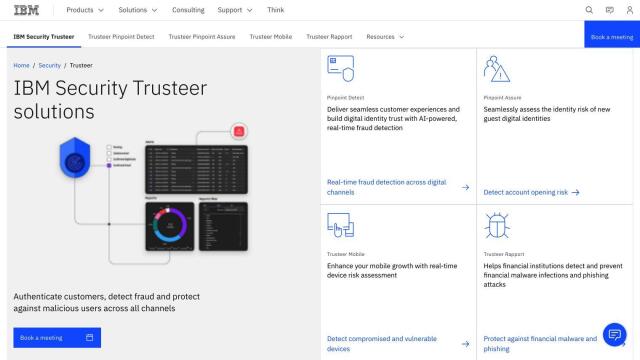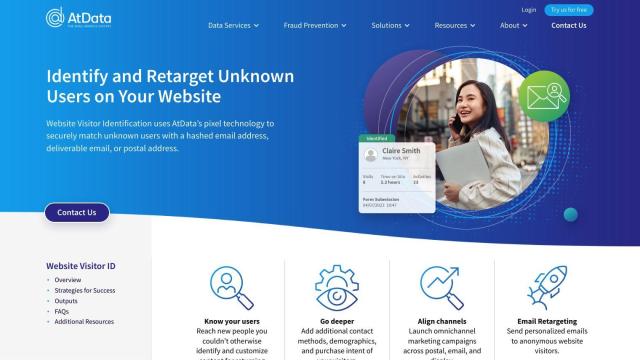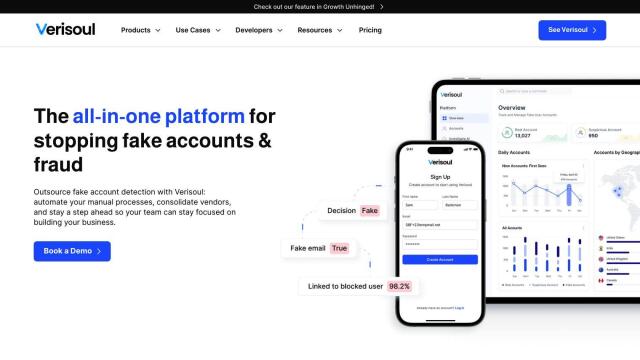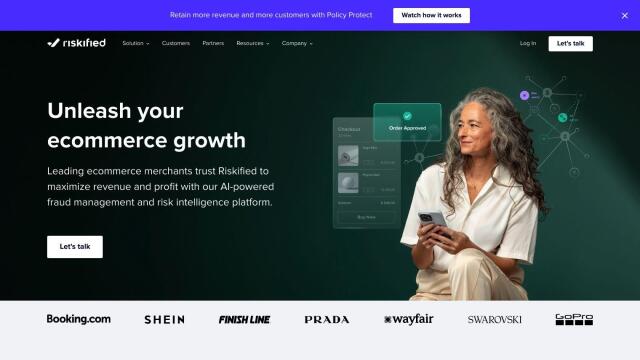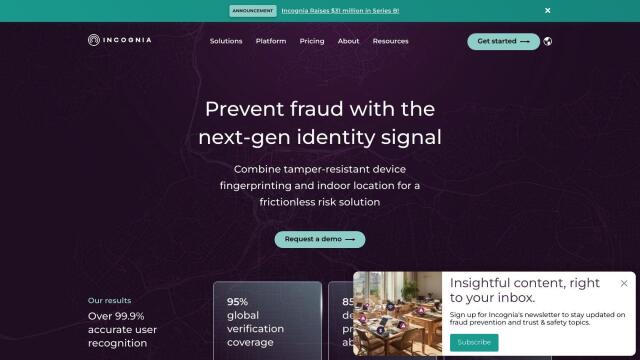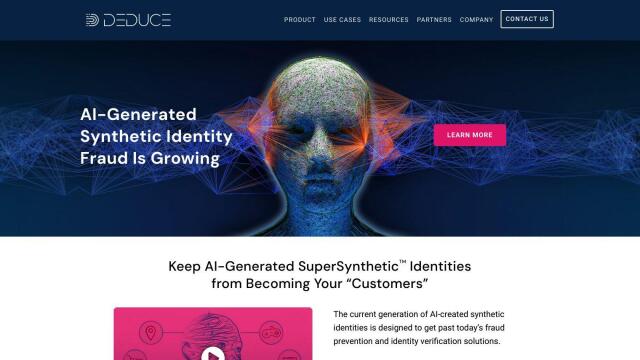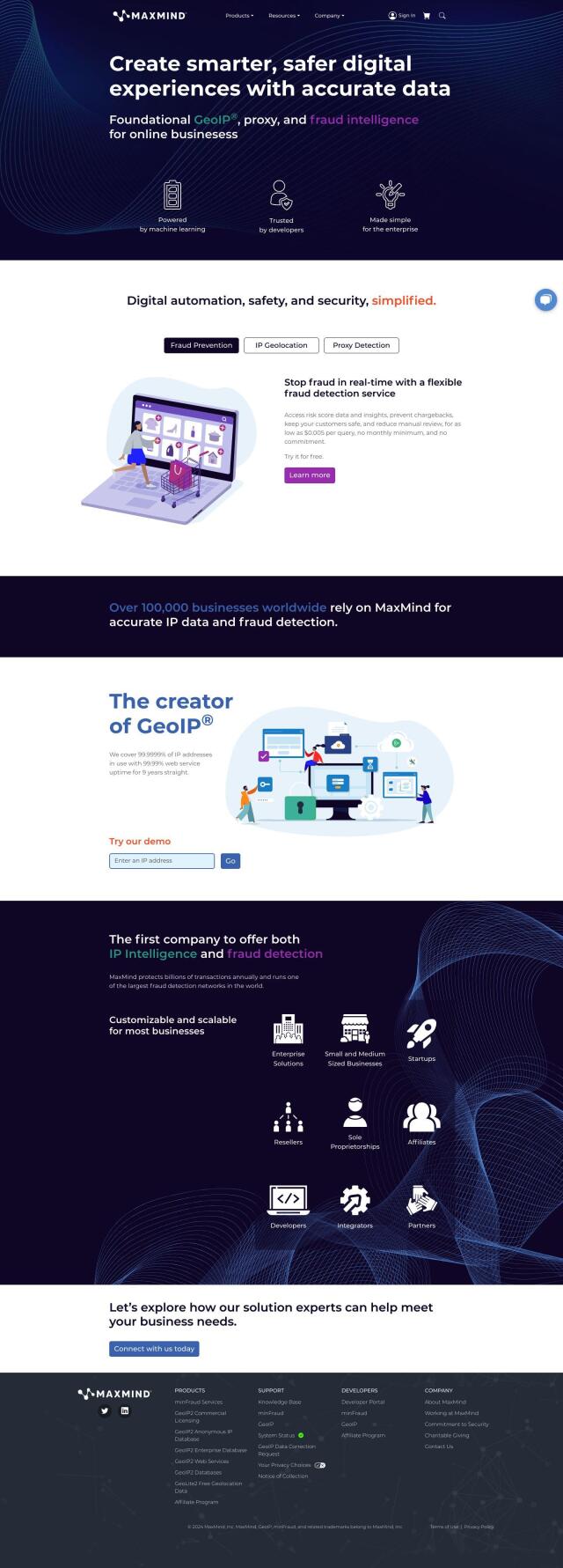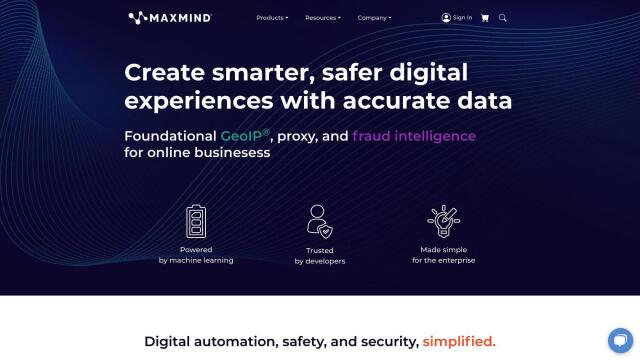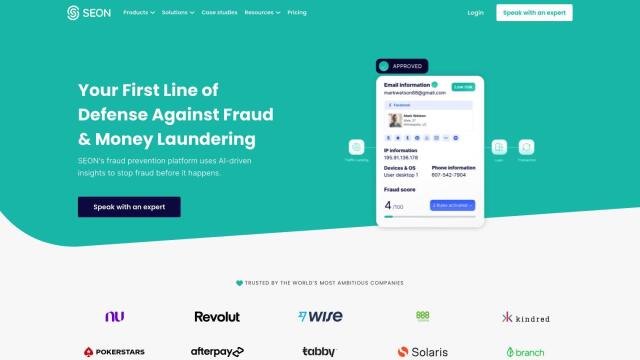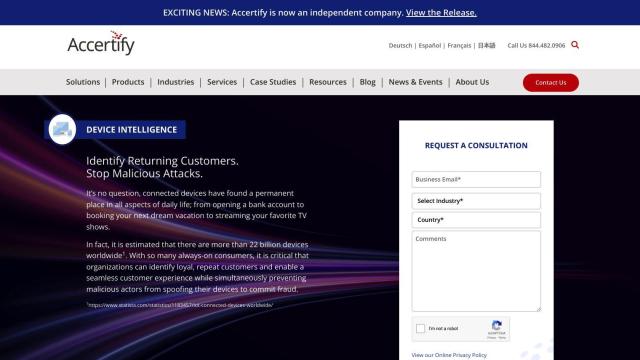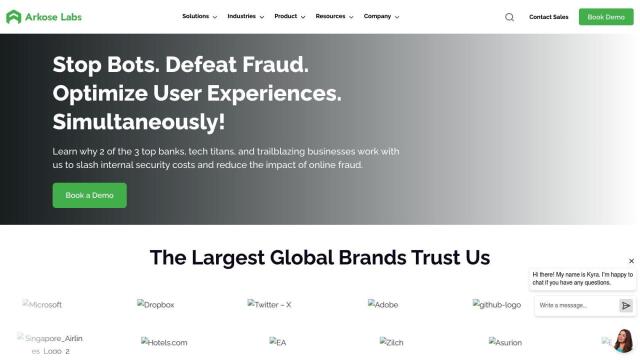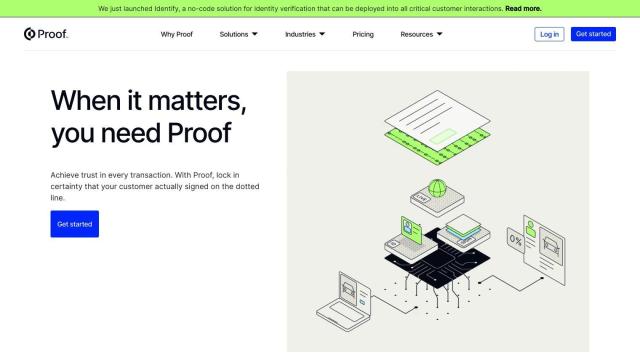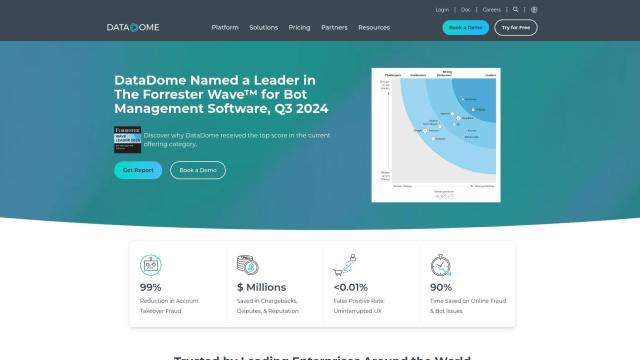Question: I need a solution that can verify email addresses and phone numbers to prevent fraudulent activity, do you know of any?

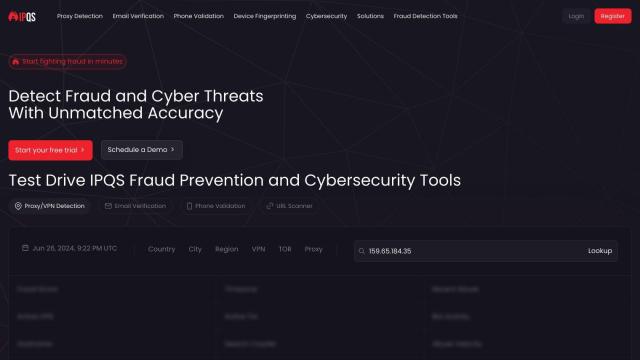
IPQS
For checking email addresses and phone numbers to cut down on fraud, IPQS is a good option. It's a full-featured AI-based fraud detection service that offers real-time insights through sophisticated algorithms that evaluate more than 300 data points. It includes features like email verification, phone validation, proxy and VPN detection, fraud scoring and risk assessment. It integrates with Hubspot, Salesforce and Outreach and has tiered pricing, including a free plan with 5,000 free lookups per month.

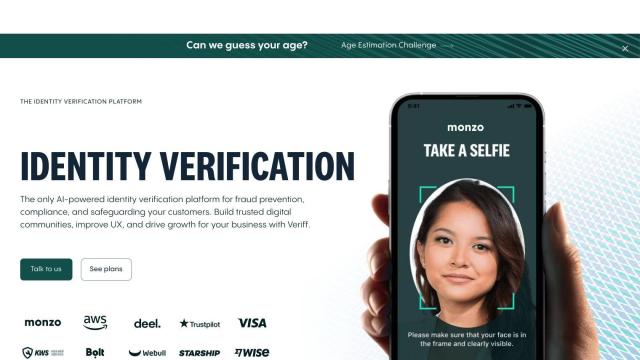
Veriff
Another good option is Veriff, which offers a range of identity verification tools, including email and phone number validation. Veriff uses a combination of AI and human verification teams to ensure compliance and cut down on fraud. It supports more than 11,500 government-issued IDs from more than 230 countries and territories, so it's a good choice for businesses with a global presence. The company is focused on providing a good user experience, minimizing friction and maximizing conversions, and it complies with major regulatory requirements.

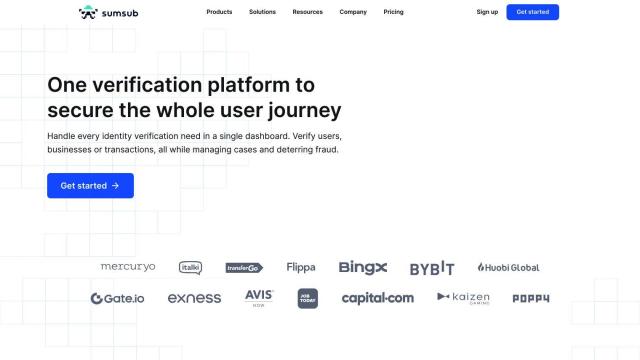
Sumsub
Sumsub is another option worth considering, particularly for businesses that want an identity verification service that handles everything. It offers real-time identity verification, business verification and transaction monitoring. Sumsub uses machine learning algorithms to detect anomalies and offers a fraud prevention service. It offers a range of APIs and SDKs for integration and has tiered pricing, so it's a good choice for businesses that want to upgrade their fraud prevention.

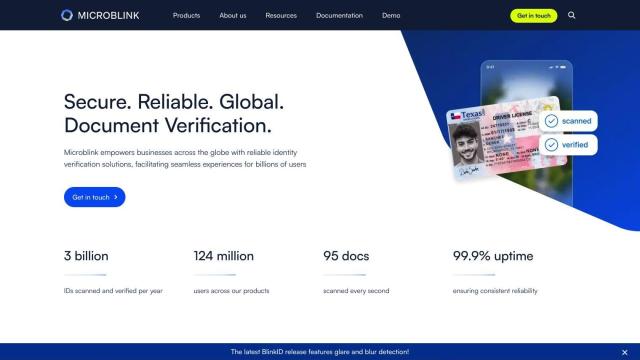
Microblink
If you prefer a more document-centric approach, Microblink offers trusted identity verification services. Its products include BlinkID for scanning and extracting data from identity documents and BlinkID Verify for real-time ID verification. It supports more than 2,500 identity documents from 140+ countries, and Microblink can help businesses meet KYC, AML and age verification requirements while maintaining strong security.

